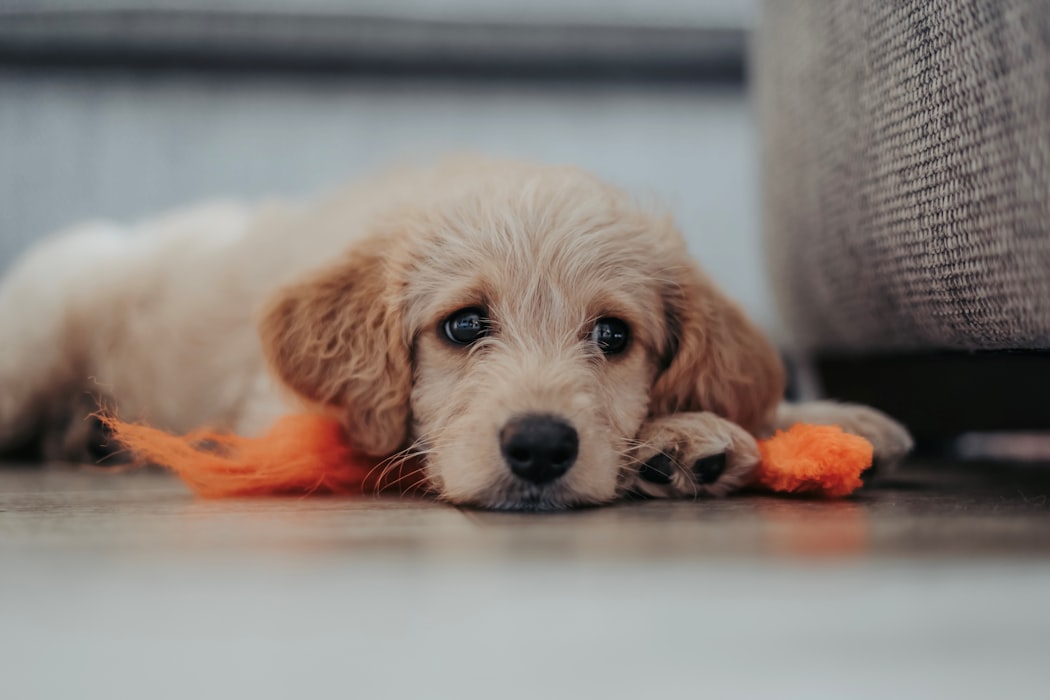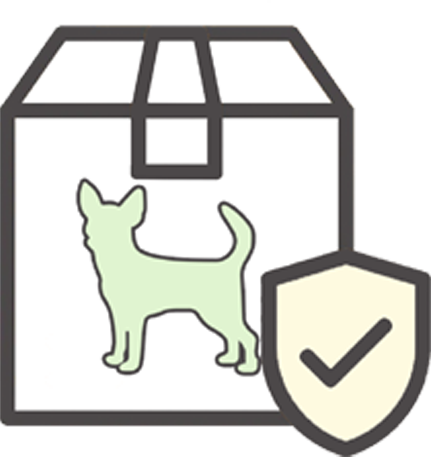Dealing with Nighttime Separation Anxiety in Dogs
Updated On: Monday, October 20, 2025 09:56:46 AM America/Los_Angeles
You and your pup have had dinner and you’re finally ready to veg on your couch for a relaxing night of binge watching your favorite show. But your dog doesn’t seem to be sharing the same feelings and is pacing and whimpering to get your attention. Even though you have no plans and show no signs of going anywhere, your dog may be displaying signs of nighttime separation anxiety.
Photo by Matthew Foulds
Why do dogs get separation anxiety at night?
After all, you’re home and they should feel better knowing that you’re settling in for the final hours of the day. To us, it may seem like their separation anxiety seems unwarranted, but there can be a number of reasons that nights are harder for your pup.
Changes in routine like a big move, loss or gain of a pet/human friend, or even a shift in their potty training schedule are all causes for increased separation anxiety. As creatures of habit, our canine buddies rely on routine to feel safe and secure. When there’s a disruption in something critical to their survival, anxiety can kick in. So even if your evening plan is to be a couch potato, your dog may be responding to overall instability and anticipated changes.
For example, you may be going out for dinner more than usual or pushing walks back by an hour because your work schedule has shifted. These changes may seem run of the mill for us, but they can prompt your dog to feel deprived of intimacy, uncertain about potty time, or worried about whether or not dinner will still be served.
Another common factor is age. As dogs grow older, their eyesight can fail and being able to see less at night can cause anxiety. They may also become nervous about not being able to reach the bathroom in time. If your dog suffers from Alzheimer’s, then they may be getting day and night confused.
How do you deal with nighttime separation anxiety?
Managing separation anxiety is primarily about developing and sticking to a routine, but sometimes other factors such as age can come into play, as mentioned. Here are some ways to address the varying causes of nighttime separation:
- Develop a new routine: The curveballs that life throws at us are inevitable. Sometimes, a tedious project may require you to stay at work longer for a span of time. However, this is not something your dog fully understands. Revise your current routine or develop a new one and stick to it as much as possible so your fur baby can be reassured that even though there are going to be some changes, that they can still depend on you to feed and walk them regularly.
- Provide an indoor dog bathroom: In the event that you simply can’t maintain routine walks, be sure to provide a pee pad like DoggieLawn. This can help dogs feel less anxious about when you’re coming home and allows your pup to take care of business even if you’re away. If you have a senior dog, having more than one bathroom can help them feel better about their potty options.
- Spend quality time with your fur baby: Playing with dogs before the night winds down is a great way to kill two birds with one stone. You not only wear them out and provide a healthy outlet for their anxious energy, you’re also spending time with your pup. Naturally calming snacks can be offered as after play time treats to further help relieve some of your dog’s anxiety.


